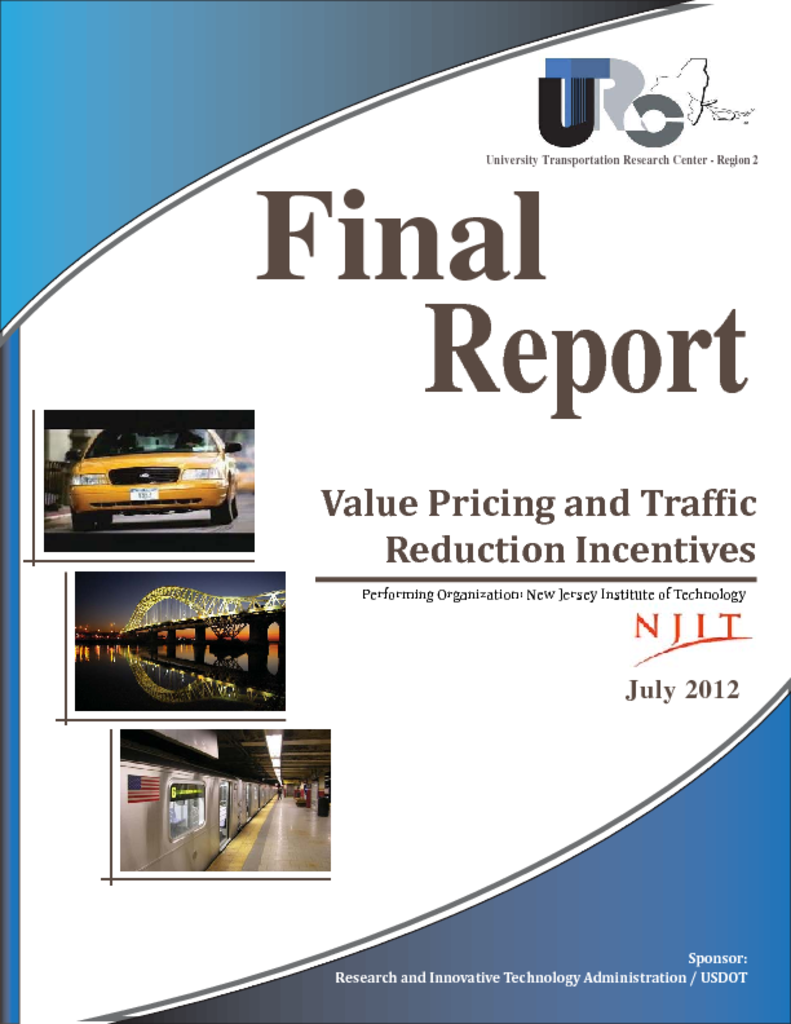As traffic congestion grows in cities and suburban areas throughout the United States, the cost of traveling is directly affected and increased. A new concept for combating congestion is the idea of Value Pricing, also known as congestion pricing. The Value Pricing theory involves altering the pricing of transportation facilities, so that it can lead to improved service for transportation users, leading to a more productive use of existing transportation capacities.
The problem often faced in value pricing experiments is an increase in congestion on the remaining “Slow Lanes”. Monetary traffic reduction incentives will solve this problem. A portion of the money generated by value lane users will be used to fund an off-peak incentive program. Daily drivers of the slow lanes will be offered a monthly reward to ensure that their daily commute occurs before or after peak hours. If administrated properly, peak hour volume will decrease in the slow lanes to a manageable size, and highway efficiency will increase as user costs accumulated by lost time are reduced. This program may be monitored by EZ-Pass to ensure driver cooperation.
This research examines through a hypothetical example, the effects on congestion in the slow lanes when additional toll revenues (Value Pricing) are combined with Peak Traffic Reduction (Incentives). This methodology is designed to use incentives to change the time/travel patterns of a portion of the highway users, while greatly reducing congestion.


